Embryo adoption is an assisted reproductive technique that has become increasingly popular in recent years. It is an option for couples who cannot conceive on their own and want to have biological children. In this article, we will explain what embryo adoption is, how it works, and what are the requirements to be eligible for this procedure.
Contenidos
What is embryo adoption?
Embryo adoption is an assisted reproduction technique in which surplus embryos from an In Vitro Fertilization (IVF) cycle are transferred to the uterus of a woman who has not participated in the embryo creation process. This means that a couple who have succeeded in IVF, but do not wish to have more children or are unable to carry a pregnancy, can donate their leftover embryos to other couples who wish to have children.
In some cases, the embryos can also come from anonymous donors. Embryo adoption is also known as donor embryo transfer or donor embryo reception and is a cheaper and less invasive alternative to other assisted reproductive techniques, such as traditional IVF or artificial insemination.
How does embryo adoption work?
The process of receiving donated embryos begins with an evaluation of the health and fertility of the recipient couple. Medical tests will be done to make sure the woman is fit to carry the pregnancy.
Once the couple’s eligibility has been assessed, donated embryos that are compatible with their genetic characteristics will be sought. The screening process is similar to that for sperm and egg donation, and is used to ensure that the donated embryos are as compatible as possible with the recipient couple.
Once the embryos have been selected, the woman is prepared for the transfer. The preparation may include the administration of drugs to regulate the menstrual cycle and increase the receptivity of the endometrium. When the woman is ready, the embryos are transferred to the womb, where they are expected to implant and start the pregnancy.
What are the requirements to be eligible for embryo adoption?
To be eligible for embryo adoption, the receiving couple must meet certain requirements. These can vary depending on the clinic and the country in which the procedure is performed, but generally include:
Age: Couples who wish to adopt embryos must be of legal age and not be older than 55 years. This is because older women are more likely to have complications during pregnancy and childbirth, and may also have a lower chance of success with embryo adoption.
Reproductive Health: The recipient couple must be evaluated by an assisted reproduction specialist to determine if they have fertility problems. If the woman has health problems that could affect her ability to carry the pregnancy, she may not be eligible for embryo adoption.
Informed Consent: The recipient couple must fully understand the embryo adoption process and the associated risks and benefits. They must be willing to sign an informed consent form before beginning the adoption process.
Commitment to the process: The receiving couple must be committed to the embryo adoption process and be willing to attend all appointments and follow all medical instructions.
What are the benefits of receiving donated embryos?
There are several benefits associated with this technique. First, it is a cheaper option than other assisted reproductive techniques, such as traditional IVF or egg donation. Second, it is less invasive than other assisted reproductive techniques, meaning there are fewer risks and complications associated with the process.
In addition, the adoption of embryos compared to traditional adoption offers the opportunity to carry the pregnancy, which may be important for some couples. It also allows couples who have been successful with IVF and who do not wish to have more children the opportunity to help other couples who wish to have children.
What are the risks associated with embryo adoption?
Although receiving donated embryos is a generally safe and effective technique, there are some risks associated with the procedure. These may include:
Multiple pregnancy: As mentioned above, multiple embryo transfer can increase the chances of success, but it can also increase the risk of multiple pregnancy. This can be dangerous for the mother and the babies.
Miscarriage: As with any pregnancy, there is a risk of miscarriage during embryo adoption.
Childbirth problems: Embryo adoption does not guarantee a childbirth without complications. The receiving couple may experience problems during childbirth that require medical intervention.
Psychological issues: Embryo adoption can be emotionally challenging for some couples, especially if the pregnancy is unsuccessful. It is important that the couple receive emotional support throughout the process.
Conclusion
Embryo adoption is an assisted reproduction technique that has helped many couples to have biological children. Although they are not genetically their own, the development of the fetus inside the womb itself and the birth create a special biological bond. It is a cheaper and less invasive option than other assisted reproductive techniques, and offers the opportunity to help other couples who want to have biological children. However, as with any medical procedure, there are associated risks and complications that must be considered.
If you and your partner are considering embryo adoption, it is important to speak with an assisted reproductive specialist to determine if it is an appropriate option for you. It is also important that they fully understand the embryo adoption process and the associated risks and benefits before making a decision.
If you decide to go ahead with embryo adoption, be sure to seek emotional support throughout the process. Embryo adoption can be an emotionally challenging journey, but it can also be an incredibly rewarding and exciting experience.






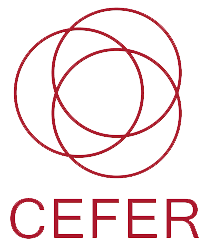

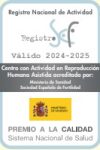
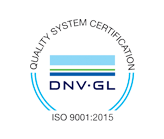
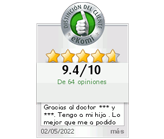


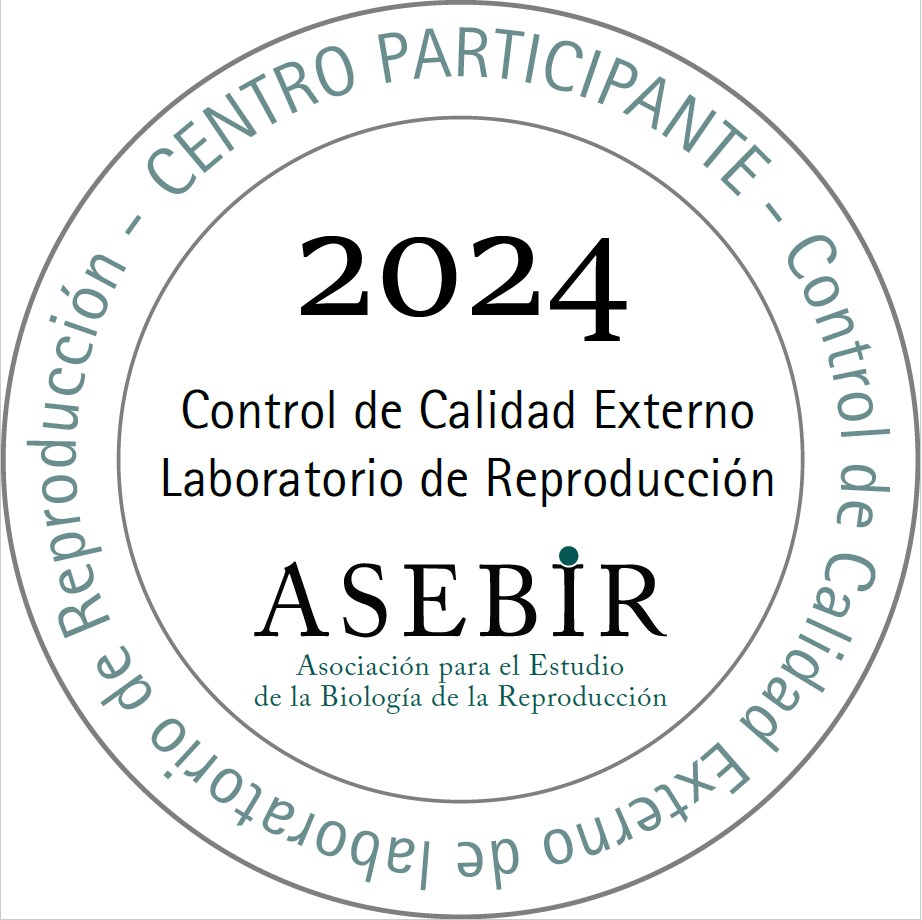

 We use our own and third-party cookies to analyse the use of the website and to show you advertising related to your preferences based on a profile of your browsing habits (e.g. pages visited).
We use our own and third-party cookies to analyse the use of the website and to show you advertising related to your preferences based on a profile of your browsing habits (e.g. pages visited).